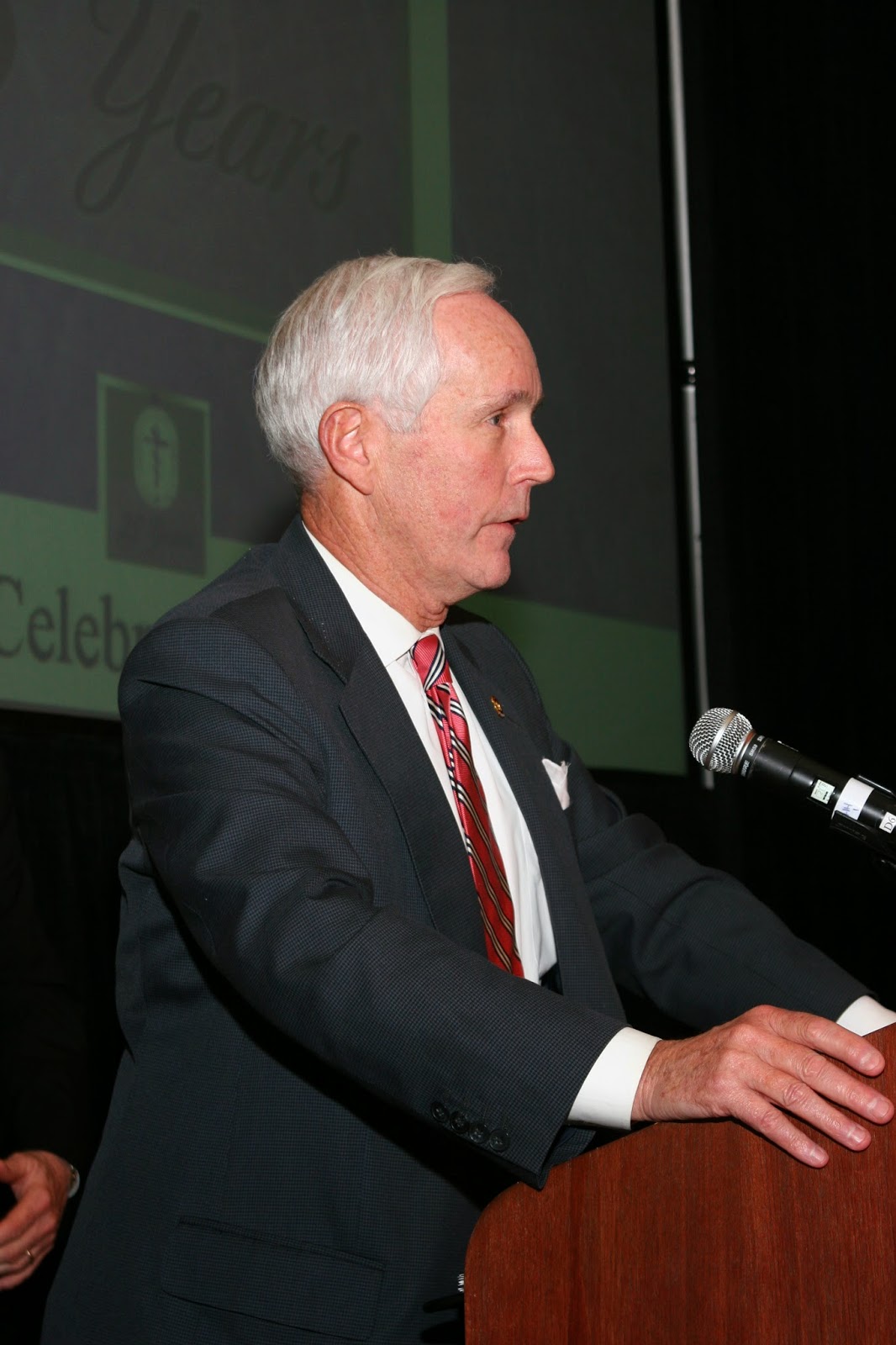AWS lost a long time friend and supporter this month. Dr. Russell is remembered fondly by those Council members who had the privilege to interact with him during his visits to
the annual Spring Council meeting that was held at ACS headquarters in Chicago.
He is seen in this photograph accepting the AWS
Nina Starr Braunwald award on behalf of the ACS in 2006. He worked hard to
support women in surgery. Read more
about Dr. Russell here.
Some thoughts from AWS members are included here. Please comment below or visit our Facebook page and share
your stories about Dr. Russell or comment on this story.
"Dr. Russell was very accessible,
even to the resident. He came to speak at our institution, and in his
answers, he discussed how he attempted to answer as many inquiries or problems
as possible in his position as executive director of the ACS. He
understood that medicine was changing, and tried to make sure that no surgeon
was left behind. He acted as both guardian and muse."
“[Dr. Russell’s first interaction with the AWS as
Executive Director of the ACS came at a Spring Council meeting in Chicago.] When
he had the politically sensitive task of mending the fence [after a prior
meeting of the AWS with a colleague had not gone as well as expected]. The look
on his face as he entered the room was not unlike the ones I've seen on
residents walking into an operating room to discuss a difficult situation with
an edgy attending. It was clear he was trying so hard to let the AWS know
he really felt bad about what happened, that all is defenses fell away and he
spoke from the heart. He talked about how his own daughter
wanted to be a surgeon and how he really and sincerely wanted the AWS and ACS
to work together to make things better for all women surgeons. He was so
genuine and earnest in his talk that no one had the heart to re-hash the hurt
feelings. We thanked him for his sincerity and have appreciated his
efforts on the part of the AWS ever since.”
“I
have been fortunate to mentor and train Katie Russell, Tom Russell’s daughter,
as a general surgery resident for the last 6 years. Katie is truly her
father’s daughter, someone who approaches every situation with kindness and
enthusiasm, and someone whom you can unequivocally depend upon. Although
I peripherally knew Tom before Katie joined us at Utah, I got to know him
better during her time here, which was a genuine privilege. Every time I
would run into Tom at a meeting, I would get a warm hug and he would express
his gratitude for my mentorship of Katie. What I couldn’t ever explain to
Tom was that Katie is one of those superstars for whom I feel like I have had
to do relatively little - I’ve simply encouraged, provided opportunities, and
enjoyed being within her orbit. I see his grace and humility in all of my
interactions with her, and I am better for knowing them both. Tom will be deeply missed. I’m grateful
that another generation of the Russell family is part of our wonderful
profession. He leaves us an amazing legacy in many ways.”
We
look forward to reading more memories from our members. Please respond of below or on our Facebook page.
























.jpg)

